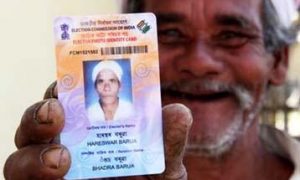Cybercriminals have developed this new method to scam people.
In the current era of technological advancements, where the internet and social media have significantly simplified our lives, the shadow of criminal activities looms large.
Read More: Cyclone Michaung: Storm Weakens After Landfall, Odisha & Parts of AP Still on Alert; Chennai Flooded
Even as technology progresses, so do the tactics of criminals. Recently, a new scam method named ‘Digital Arrest’ has emerged, showcasing the adaptability of cybercriminals to the evolving environment.
Over the past few weeks, two significant cases of cyber fraud through digital arrest have been reported, both originating from Delhi and extending to Noida. Disturbingly, these incidents involved the blackmail and duping of women who fell victim to this digital deception, losing substantial amounts of money.
But what exactly is a digital arrest? While we are familiar with the concept of an arrest when someone is apprehended by a police official, a digital arrest introduces a new dimension to scams. In this method, cybercriminals masquerade as police officers, leveraging video calls to intimidate and threaten their victims. The perpetrators can convincingly pose as police or investigators from various agencies, using fake backgrounds on their screens to create a semblance of authenticity. The victim, unsuspecting, may believe they are undergoing a legitimate police interrogation.
Read More: Tea exports fall 4.93% during January-September
According to reports, the cybercriminals contact their victims, alleging that their Aadhaar card, SIM card, or bank account has been implicated in criminal activities. Subsequently, they fabricate charges against the victim, even simulating an arrest scenario, ultimately extorting money from them. Disturbingly, victims may also be digitally monitored without their knowledge, intensifying the invasive nature of this scam.
To safeguard against falling prey to the digital arrest scam, individuals are advised to take the following precautions:
Verify the Call: Be cautious as government officials, police, or agencies typically do not initiate contact via phone calls. It is crucial to verify the caller’s identity and credentials before divulging any information.
Protect Personal Details: In the face of suspicious calls, individuals should refrain from sharing sensitive information such as Aadhaar and PAN card details, particularly their bank account information.
Read More: Cyclone Michaung: 550 IndiGo Flights Cancelled When Chennai Airport Was Flooded Due To Heavy Rains
Demand Documentation: If faced with allegations, individuals should demand official documentation from government officials or agencies to substantiate the claims made against them.





































